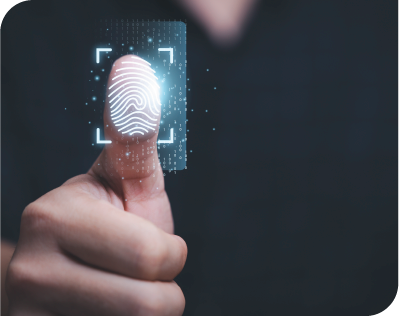Identity theft is an increasingly widespread scourge, from which everyone can contribute to protect themselves by adopting simple and good habits. Some precautions are necessary.
In growingly creative ways, fraudsters attempt to obtain information about you, often in seemingly harmless ways. Individually, these pieces of information often have little value, but when combined, they can gradually open the doors to the theft of your identity, for all sorts of purposes.

Information sought
Among the list of information that fraudsters will seek to obtain, the most well-known are:
- Answers to your secret questions;
- Passwords;
- Name;
- Address;
- Telephone;
- Names of family members;
- Driver's license;
- Health insurance number;
- Social insurance number;
- Credit and bank card numbers;
- Any information that could contribute to identifying you.
Advice to follow

ANSWERS TO YOUR SECRET QUESTIONS
How many times have you seen on social media thousands of people answering fun surveys asking for the brand of their first car? The street they grew up on? The name of their first pet? Their mother's maiden name? It's a striking resemblance, and not always harmless, to the secret questions used to regain access to sensitive accounts.

While fun and often without any malice, choose wisely the quizzes and surveys you respond to, and above all, unless absolutely necessary, avoid providing information known to contribute to identifying you. They are much more common than you think!

VERIFY THE IDENTITY OF YOUR INTERLOCUTORS
When you receive any form of communication (phone calls, texts, emails, social media messages, regular mail, etc.) inviting you to respond, open a link or file, or any form of action or information transfer, always start by validating the real necessity to do so and the authenticity of your interlocutor.
Some fraudulent emails, texts, calls, and mails are extremely credible and blatantly take on the identity, including the shipping address, of trusted providers, for example.

If an email or text invites you to log in to an account that you usually access through an application or directly on the web, log in as you normally would rather than clicking on the link included in the communication.
When you receive a phone call instructing you to identify yourself in any way, ask your interlocutor first to do the same and to demonstrate beyond any doubt their affiliation with the entity they represent.

IDENTIFICATION DOCUMENTS
Although much is said about digital security, in terms of identity theft, your personal identification documents remain prime targets for potential fraudsters. Their use and sharing should be done discreetly and while adhering to some basic principles.

Unless absolutely necessary, keep your cards and identification documents in your possession at all times.
When you open your wallet, there's no need to expose your driver's license and identification cards. Placing them upside down is a simple and logical way to protect against prying eyes and cameras.

STORAGE AND DESTRUCTION OF DOCUMENTS
The documents you accumulate and dispose of may contain a wealth of detailed information that is very useful to anyone wishing to steal your identity. Make sure to store them in secure locations and, most importantly, make them unusable before disposing of them.

When disposing of documents, hard drives, phones, and other items that may contain information allowing the identification of yourself or your surroundings, always prioritize shredding and proper data destruction. There are household tools designed for this purposed, as well as specialized, secure, and affordable services.

